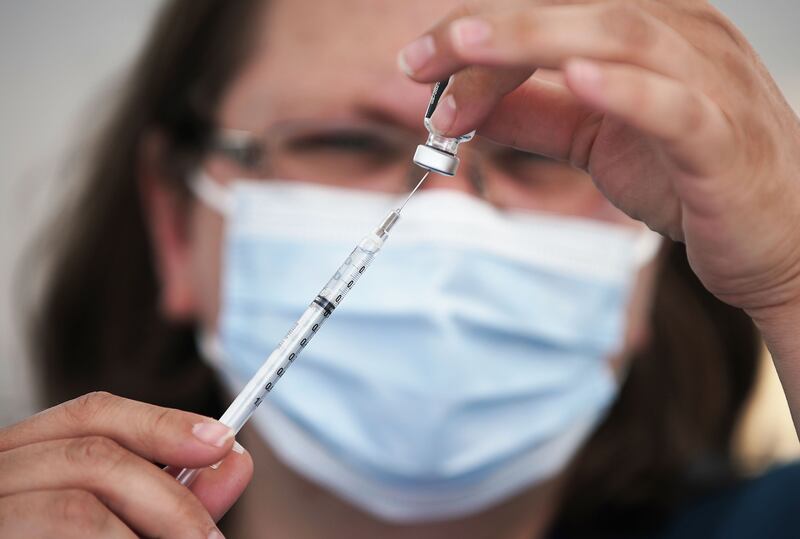Sen. Mitt Romney said Tuesday he and others are ready for a COVID-19 booster shot and expressed frustration during a Senate hearing that a third vaccination against the deadly virus is already available in some countries including Israel but not the United States.
“There are a number of us that would get in line to get a booster,” Romney said during a U.S. Senate Health, Education, Labor and Pensions hearing on the federal response to the COVID-19 pandemic, pressing Dr. Janet Woodcock, the acting administrator of the U.S. Food and Drug Administration, for a timeline.
“How long is it going to take before we’re able to get sufficient information to allow Americans who want to get an additional vaccination to be able to do so? Are we talking weeks? Are we talking months?” the Republican Utah senator wanted to know, questioning why data from other countries couldn’t be used to speed up the process.
“The agencies represented here are all monitoring this extremely carefully,” Woodcock said, pointing out that nearly all of the nation’s current coronavirus hospitalizations and deaths are among Americans who are not yet vaccinated.
“I understand that,” Romney interrupted. “But I’m looking at the data that’s coming from Israel and people who have double vaccinations are still susceptible to the delta variant (of the coronavirus) for serious disease and death. They’re showing if they get a booster, that’s dramatically reduced.”
He asked why the federal government shouldn’t allow “people who are elderly or have other compromised conditions to be able to get that booster.” Israel began offering a third dose of the Pfizer vaccine to adults with weakened immune systems earlier this month.
Woodcock said the FDA is looking at booster shots, but additional authorization would be required. Currently three vaccines are approved for emergency use in the United States — from Pfizer, Moderna and Johnson & Johnson. The Pfizer and Moderna vaccines require two doses for full vaccination while Johnson & Johnson is a single dose.

Romney said he is hearing from people who want additional shots.
They are “at risk and concerned. They want to take that booster, they’re willing to take that additional risk,” he said, adding they are seeking an additional shot for added protection. “Why can’t they? I understand you won’t let them yet, but when will you let them?”
Woodcock said Pfizer has announced it wants to give booster shots and is expected to include data from Israel to support the request. “The FDA will be looking at that,” she said.
“I’m sure you will,” Romney said. “I don’t like the timeframe, frankly, given the fact that this is being done elsewhere.”
The senator also raised the issue of vaccine hesitancy, blaming some of it on “spurious conspiracy theories” and possible efforts by enemies of the United States using social media to try to get people to reject the shots. But he says another reason some people remain reluctant is they don’t know why the data says they should.
“They wonder, ‘OK, is this really a good thing for my 16-year-old? What are the serious side effects of this vaccine for a 16-year-old versus the probability of them getting very ill,’” asking if that type of information was easily accessible since some claim it is being hidden or underplayed.
Dr. Rochelle Walensky, director of the Centers for Disease Control and Prevention, said there are a “host of reasons” Americans aren’t getting vaccinated, and data is being collected and available to help local public health officials to answer their concerns.
“We’re covering the gamut,” Walensky said.


